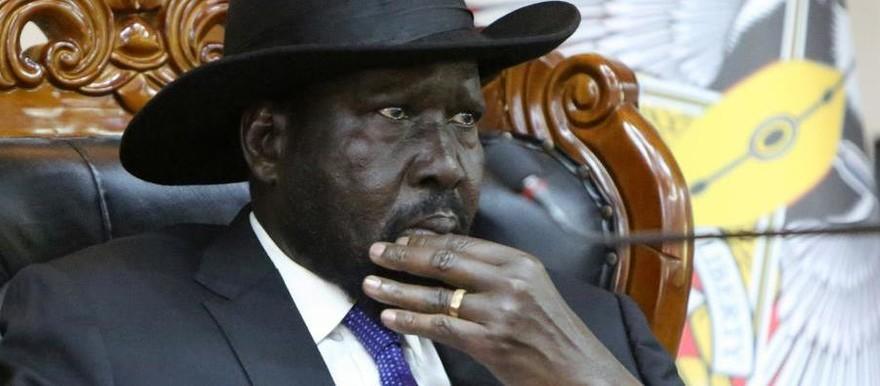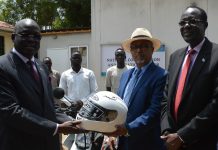Africa-Press – South-Sudan. President Salva Kiir has Thursday evening appointed James El-Taib Berapai, a member of his party, the Sudan People’s Liberation Movement in Government (SPLM-IG), as the new Governor of Western Equatoria State nearly six months after dismissing Alfred Futuyo, in glare violation of the peace agreement.
Under the Revitalized Agreement on the Resolution of Conflict in South Sudan (R-ARCSS), the Western Equatoria gubernatorial position is allocated to the Sudan People’s Liberation Movement in Opposition (SPLM-IO), led by detained First Vice President Riek Machar.
The appointment follows months of uncertainty and political manoeuvring that began in February 2025, when Kiir dismissed Futuyo, the SPLM-IO-appointed governor, under unclear circumstances.
Futuyo, whose leadership had been marked by both grassroots popularity and internal party tensions, fled Yambio, the state capital, shortly after his dismissal. No official explanation has been provided by the presidency or the SPLM-IO regarding the reasons for his removal or his current whereabouts.
In the months that followed, Daniel Badagbu, an SPLM-IG member, assumed interim gubernatorial duties, effectively sidelining the SPLM-IO in a region it was entitled to govern under the peace deal.
The decision to install James El-Taib, a fellow SPLM-IG figure, as the permanent governor is now seen by many observers as a violation of Article 1.16.3 of the R-ARCSS, which clearly stipulates that Western Equatoria State falls under SPLM-IO’s share of state-level positions.
While government officials have justified the move as a response to public demand for stability, particularly in a state that has endured cycles of tribal conflict, revenge killings, and militia activity, critics argue that circumventing the peace agreement could undermine hard-won gains made toward political inclusivity and trust-building among former warring parties.
“The local desire for peace is valid and urgent,” said one civil society leader in Yambio who asked not to be named for safety reasons. “But stability built outside the framework of the peace agreement is inherently unstable. It sets a dangerous precedent.”
Western Equatoria, rich in natural resources and once considered one of the most peaceful regions in South Sudan, has in recent years become a hotbed of intercommunal violence, fueled by competition over land and militia politics. Under Futuyo, there were attempts to disarm local groups and initiate reconciliation dialogues, but progress was slow and uneven.
For More News And Analysis About South-Sudan Follow Africa-Press






